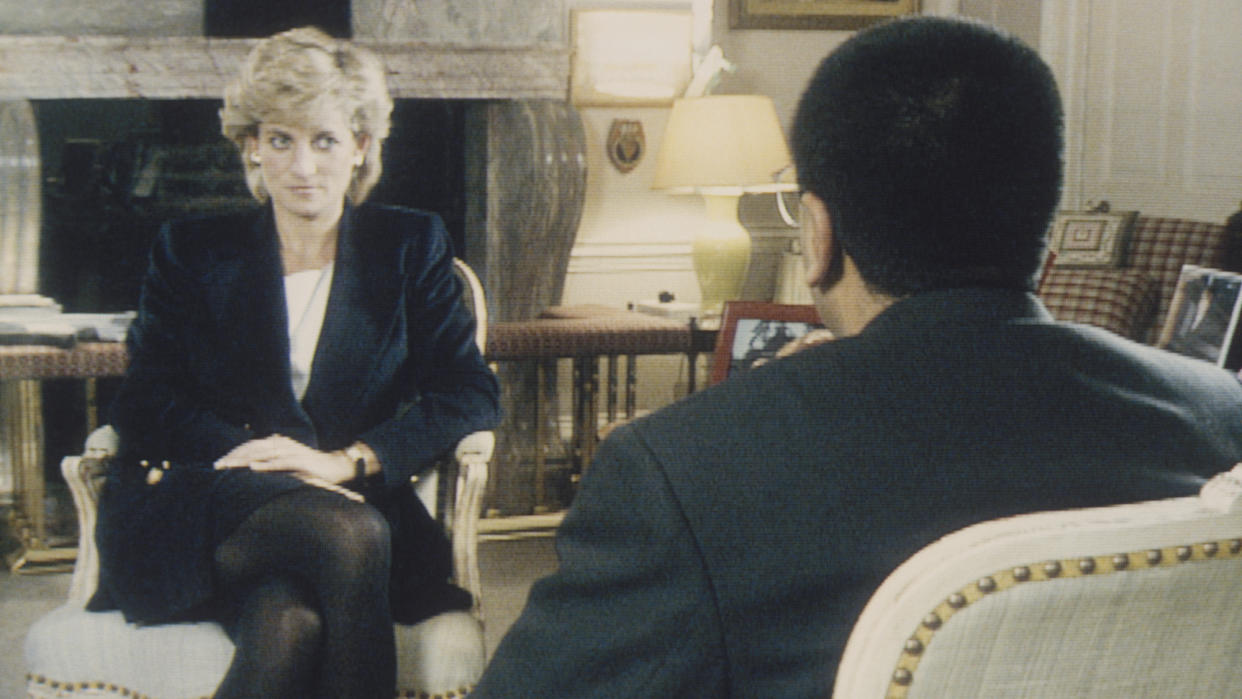The Princess Diana interview and Martin Bashir's redacted dossier

Journalist Martin Bashir said "professional jealousy" and discrimination led to accusations that he used deceit to secure an interview with Princess Diana, newly released BBC emails show.
A court-ordered release of documents from the broadcaster has uncovered messages from Bashir to BBC managers in 2020 in which he continued to deny allegations that he used forged bank statements to obtain an interview with the Princess of Wales in 1995. A 2021 inquiry led by Lord Dyson eventually concluded he had mocked up documents to gain access to Diana.
In one email, Bashir told Robert Seatter, the head of BBC History, that the scandal had "allowed professional jealousy" to "hang its hat on alleged wrongdoing", and that there was "irritation" within the corporation that someone of "non-white, working-class roots" procured the royal interview.
The documents were obtained through a Freedom of Information (FOI) request by investigative journalist Andy Webb, who claims the BBC knowingly covered up the scandal. However, the documents were heavily redacted and "covered in censor's black ink", said the Daily Mail. Webb said the edited documents made it "impossible to determine" who said what to whom, and that the release of documents had been "completely chaotic".
The background
The scandal stems from an interview with Diana obtained by Bashir for the BBC's "Panorama" programme in 1995. The sit-down chat with the "troubled princess" was a huge "scoop", said the Mail, with "explosive" revelations about her personal difficulties as well as her then-husband Prince Charles's affair with Camilla Parker Bowles. The interview was the "final blow to Charles and Diana's troubled relationship", said History.
But it was accusations over how Bashir secured the interview that brought Diana "back into the spotlight 24 years after her untimely death". The journalist, now 61, was accused in 1996 of showing forged bank statements to Diana's brother Charles Spencer that purported to show that "senior courtiers were being paid by the security services to spy on" the princess, said The Independent. Earl Spencer then introduced Bashir to Diana, leading to the interview.
Bashir was cleared in an internal investigation conducted that year by former BBC director general Tony Hall, who concluded that he was an "honest and honourable man". But the findings were labelled a "whitewash" by Earl Spencer, whose allegations, along with new documentaries on the interview on ITV, Channel 4 and Channel 5 in 2020, ultimately led to the Lord Dyson inquiry.
That inquiry found that Bashir had been "deceitful" in obtaining the interview, and that the BBC had fallen short of "high standards of integrity and transparency" in its investigation. Bashir admitted to forging the documents, calling it a "stupid thing to do", but always insisted it had "no bearing on Diana's decision to be interviewed", said the BBC's Francesca Gillett. Bashir quit his role as religion editor at the BBC on health grounds in 2021 and maintained he was too unwell to assist in the investigation.
The latest
Webb made FOI requests to the BBC in 2021 over "claims that BBC managers had tried to cover up Bashir's actions" when the scandal re-emerged in 2020, said The Guardian. The corporation said the accusation was "simply wrong", but was ordered by a judge in December 2023 to release a swathe of emails surrounding the interview, after being found to have been "inconsistent, erroneous and unreliable" in dealing with the initial FOI request.
The 3,000-plus emails released by the BBC this week include Bashir's assertion that the accusations were fuelled by jealousy and prejudice.
The reaction
The BBC now "faces legal action" after making "sweeping redactions" to the emails before releasing them, said The Times. The BBC has spent "more than £150,000" on lawyers "trying to block the release of the documents" around one of its most "damaging controversies".
Webb has subsequently suggested that the redacted documents may show the BBC is "withholding important internal evidence" and that there would need to be "another court challenge" to uncover them, said Sky News. The "continuing secrecy", added The Times, will further "fuel the anger" of Spencer, who has continually "cast aspersions" on the "integrity" of the BBC.
The broadcaster said it had "provided all relevant documentation" required and had made "necessary" redactions, adding that there was "nothing to support the allegations" of "acting in bad faith in 2020".


